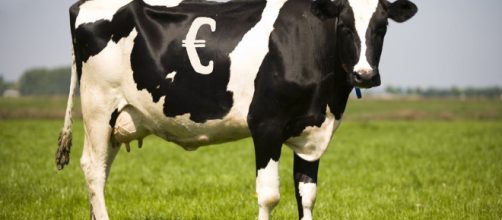The EU's Common Agricultural Policy (CAP)was a driving factor behind Britain's decision to back Brexit in June 2016. This policy was originally designed to shield European farmers from competition abroad and protect Europe's poorest farmers. However, by subsidizing farms throughout the continent, the CAP has only increased shopping prices for consumers and placed farmers abroad at a disadvantage, particularly African farmers. Many British taxpayers resent their money being shipped abroad to subsidize small French farmers' profits.
"It is almost impossible to reform it and it fails to protect animals' welfare"
However, until the UK has fully left the EU, which it may not do until 2021 because of this proposed transitional deal, this country has to abide by this hated legislation. Not only does the CAP cost taxpayers vast sums of money, it is almost impossible to reform it and it fails to protect animals' welfare.
The University of Cambridge commissioned a study into CAP reforms that last took place in 2014 and found that they fail to protect European wildlife. Budgets to support voluntary greening measures have been reduced, meaning farmers will not receive funding to protect wildlife. The EU is unlikely to meet its own biodiversity targets by 2020 because of the difficulties member states face in translating the 2014 reforms into their own laws.
The paper stated the biggest threat to Europe's wildlife was EU expansion. This is because this process drives agricultural intensification. With forty per cent of the EU's budget spent on the CAP, this has led to grassland conversion and peatland drainage, which is more severe in new member states where the use of fertilizers is high. Permanent grassland has shrunk by eleven per cent.
Leaving the EU is an opportunity to repeal the hated CAP and bring in farming laws appropriate for this country, as opposed to adopting European-wide initiatives that always fail.

